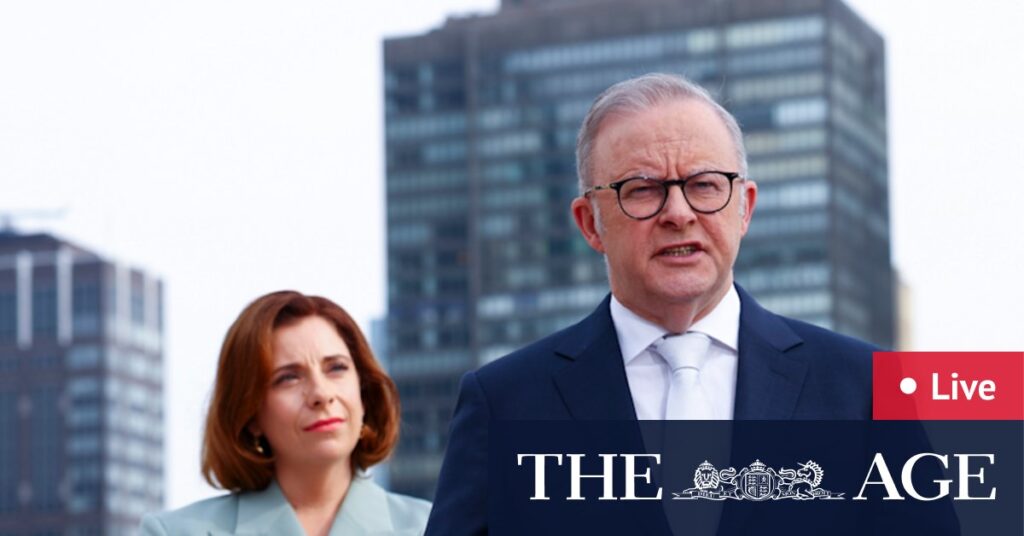
Prime Minister Anthony Albanese has made a compelling appeal at the United Nations, urging countries to join Australia in recognizing a Palestinian state. This diplomatic move, echoed by Canada and the United Kingdom, underscores a commitment to the principles enshrined in the UN Charter.
Albanese emphasized the enduring relevance of the UN’s founding ideals, stating, “Australia recognized the state of Palestine, because, to quote from the [United Nation’s] Charter that forms the very foundations of this institution and reflects the very best of its idealism. We are determined: ‘To save succeeding generations from the scourge of war. To reaffirm faith in fundamental human rights. To promote social progress and better standards of life in larger freedom. And for these ends: to practice tolerance and live together in peace with one another as good neighbours’.”
He further articulated, “That was right 80 years ago, and it’s right today. Every nation that takes a seat in this room has put its name to those principles. Peacekeepers and aid workers from all over the world have risked and lost their lives in the service of those ideals. So we must ask ourselves: When can those words hold meaning, if not now? Where can those words apply, if they do not apply to the Middle East? And what can we, the members of the United Nations say we stand for, if we cannot say we stand for this. There is a moment of opportunity here – let us seize it.”
Addressing Global Security Concerns
In a broader context, Albanese also addressed pressing security issues, particularly highlighting Iranian interference in antisemitic attacks in Australia. Speaking to the UN General Assembly, he condemned the orchestration of recent attacks on Jewish sites in Melbourne and Sydney, attributed to the Iranian regime.
“Just last month, Australian security agencies confirmed that the Iranian regime orchestrated the firebombing of a synagogue in Melbourne and a Jewish restaurant in Sydney. Criminal acts of cowardice, aimed at spreading fear,” Albanese declared. “We expelled the Iranian ambassador from Australia. The first time since the Second World War our country has taken such a step. And here at the United Nations we repeat to the world, there is no place for antisemitism.”
In 2025, we are confronted by all manner of these challenges in old forms and new. Dictators whose hold on power derives solely from their capacity for cruelty to their own citizens. Tyrants who invade sovereign nations to further their own ambitions.
Albanese’s comments come in the wake of an ASIO investigation that linked the attacks to the Iranian government, marking a significant escalation in diplomatic tensions between the two nations.
Global Leadership and Future Challenges
The Prime Minister’s speech also touched on the broader geopolitical landscape, warning of the threats posed by autocratic regimes and the misuse of technology to undermine democratic institutions. “Regimes willing to crush their own people beneath the weight of oppression. Autocracies deploying new technology to undermine our trust in democracy, institutions and each other. Intimidation and coercion on the seas and in the skies, endangering lives and risking escalation. Terrorists – and states which sponsor terrorism – spreading hatred,” he said.
This call to action at the United Nations highlights Australia’s proactive stance on global issues, from advocating for peace in the Middle East to addressing the threats posed by authoritarian regimes and terrorism.
Implications and Global Response
The implications of Albanese’s speech are far-reaching. By taking a firm stance on recognizing Palestine and addressing antisemitism, Australia positions itself as a leader in advocating for peace and security on the international stage. The expulsion of the Iranian ambassador signals a strong diplomatic message, emphasizing zero tolerance for interference in domestic affairs.
As the international community grapples with these complex challenges, Albanese’s address serves as a reminder of the foundational principles of the United Nations and the collective responsibility to uphold them. The call for a unified global response to social media regulation and the recognition of statehood in contentious regions may set a precedent for future diplomatic engagements.
Looking ahead, the world will watch closely to see how these initiatives unfold and whether they inspire similar actions from other nations. The Prime Minister’s appeal for unity and action at the UN could pave the way for a renewed commitment to peace and security in an increasingly interconnected world.






